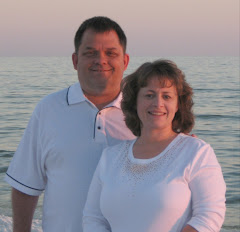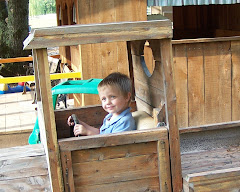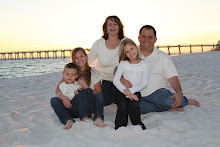
The cost of autism
Legislation in Tallahassee could require large group insurance plans to help pay for therapy
RACHEL KYLER
Sunday March 30th, 2008
NAVARRE — With wide blue eyes and cherubic cheeks, John Fowler looks like any other 6-year-old.
He runs through his Navarre home and scales the kitchen pantry shelves as his 12-year-old sister, Elizabeth, runs after him.
“You’re lucky you’re so cute,” his mother, Myra, later says while hugging John.
John is not like most children his age. His eyes wander. And while most 6-year-olds have a vocabulary of 5,000 to 20,000 words, John’s is about 500.
At 34 months, John was diagnosed with autism. However, he’s made considerable strides through intensive therapy.
“Before therapy, he wouldn’t even look at you,” said Myra, who added that he had a vocabulary of about five words.
The bulk of John’s therapy comprises Applied Behavioral Analysis, which runs from $50 to $120 an hour nationwide.
Experts recommend anywhere between 10 and 30 hours a week, but Myra said her family can’t afford more than six. John’s at-home therapy costs about $50 an hour, which the Fowlers pay out of their pocket.
There are already times when John’s two older sisters must sacrifice activities so he can have his therapy, she said.
“Every extra penny goes to John’s therapy right now,” she said.
A new piece of legislation could help families such as the Fowlers afford to do more for their autistic children.
Dubbed “The Window of Opportunity Act,” the bill would require large group health insurance plans to provide diagnostic screening, intervention and treatment of autism. It would prohibit insurance companies from denying autistic children therapy.
Sandra Hastings, a certified behavioral analyst, has worked with autistic children since 1989. She has worked the past four years for Santa Rosa County schools.
“I wouldn’t imagine anyone could afford it,” Hastings said of the expensive therapy.
Applied Behavioral Analysis is one of the most highly respected forms of therapy. At its core, it tries to train autistic children to communicate — which is not the same as how to talk, Hastings said.
Children with autism often cannot recognize facial cues or other forms of communication, Hastings said.
For example, instead of telling a child that a drink is hot or cold, it may be necessary to place their hand on a coffee cup so they can feel the warmth, Hastings explained.
In some states such as Pennsylvania, New York and California, the therapy is offered in public schools.
“That’s why you have families in utter shock when they move here,” Hastings said. “Educational systems often get stuck in teaching the aspects of reading, writing and arithmetic, when often what their children need are socially relevant and functional behaviors.”
Hastings said based on her experience, up to 80 percent of autistic children could hold jobs and become more independent. Some of them would no longer need to be institutionalized.
“We know that if you spend the money on the front end, it will save money,” she said.
The Autism Society of America estimates that the lifetime cost to care for a child with autism ranges from $3.5 million to $5 million, and that the United States is facing almost $90 billion annually in costs.
The ASA reports that the lifelong care costs can be cut by two-thirds with early diagnosis and intervention.
Ana Leurinda, a family therapist and founder of Brilliant Minds in Destin, said if autistic children are allowed to get early treatment, “they will be able to live in society, hold jobs, live independently.”
Leurinda said she has lived in the world of autism for nine years with her daughter, Nicole.
People want quick fixes, the proverbial snake oil, she said. But in reality, therapy is a long, time-consuming process.
“Like every other illness, insurance should be able to pay for Applied Behavior Analysis as therapy for children with autism,” Leurinda said. “It does not differentiate itself from any other medical illness. … There is widespread medical evidence that this therapy is significant in the treatment of children with autism.”
Navarre resident David Triana, who pays up to $13,000 a year for his son’s treatment, said autism often falls between the cracks.
“Early identification, early intervention provide for you to take advantage of the window of opportunity to give children the intensive therapy to reach their maximum potential,” he said.
Two separate bills, SB 2654 and HB 1291, are working their way through state House and Senate committees. It’s unclear when or if they will reach the floor.
With recent statistics saying 1 in 150 children will be born with autism, the country is facing a staggering amount of care, Myra Fowler said.
“Just support people with autism, children with autism,” she said. “You may not have one now, you may not know one now, but you’re probably going to.”
--------------------------------------------------------------------------------
This appeared in the Northwest Florida Daily News on Monday March 31st. John is actually 4 nearly 5 and the dollar amounts on what we pay are not quite acurate but you get idea and otherwise it is a good article.
For the article along with videos of ABA go to http://www.nwfdailynews.com/article/13218/1
Myra







.jpg)





